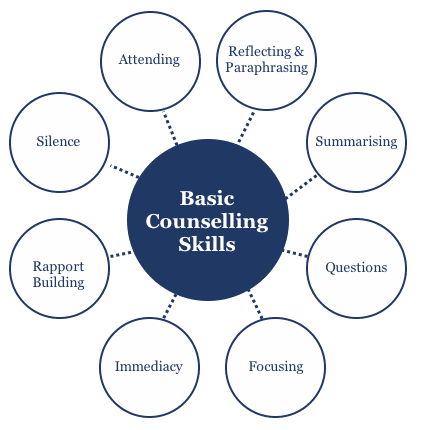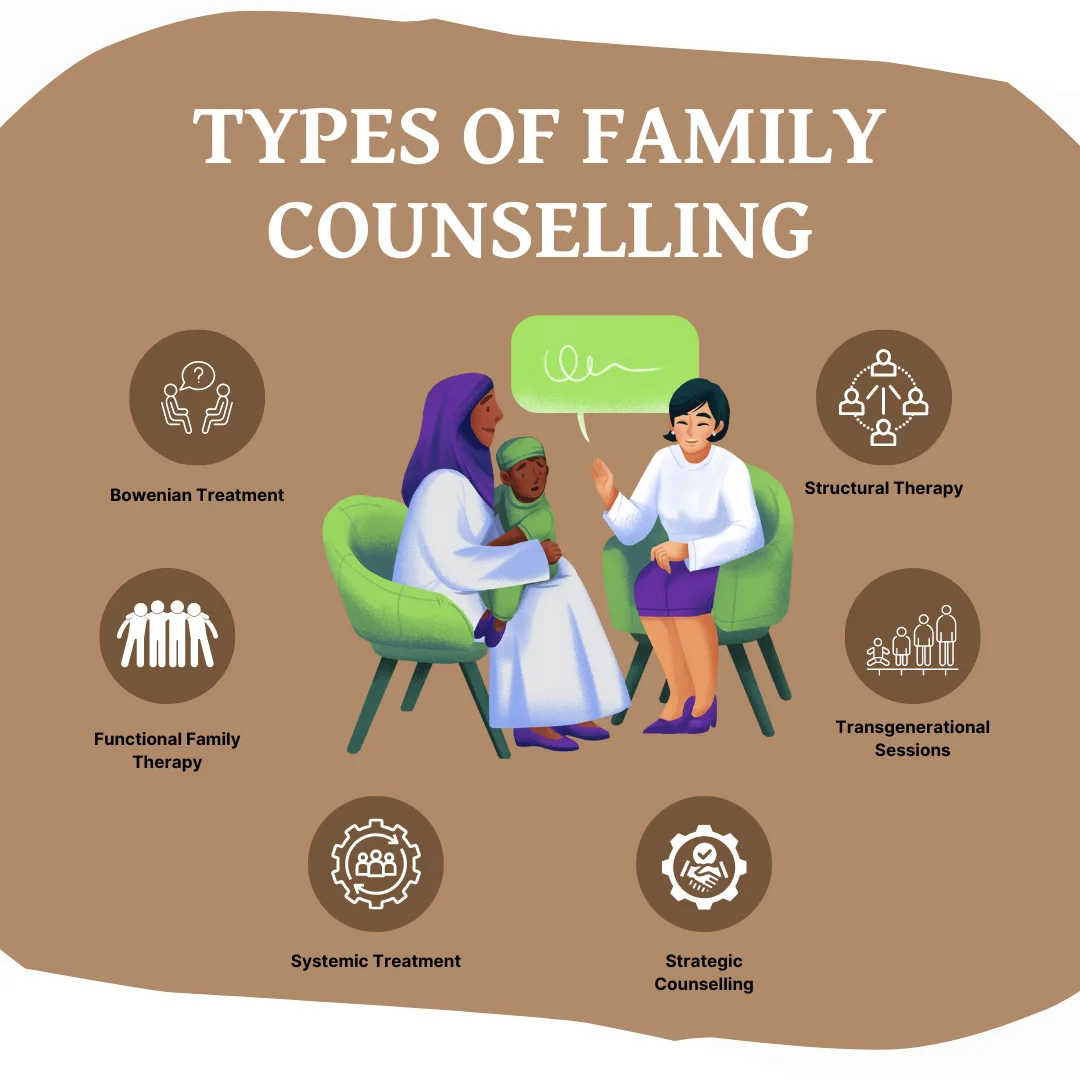A Comprehensive Guide to the Different Types of Counselling and Their Impact
Therapy incorporates a selection of healing techniques, each developed to satisfy unique mental health requirements. From the structured techniques of Cognitive-Behavioral Treatment to the compassionate nature of Person-Centered Therapy, these techniques provide unique pathways to personal development. Family therapy and Dialectical Habits Therapy offer additional structures for healing, while group counseling promotes community assistance. Understanding these diverse approaches can brighten their profound influence on individual well-being. What stays to be checked out are the details of each technique.

Recognizing Cognitive-Behavioral Therapy (CBT)
Although numerous therapeutic approaches exist, Cognitive-Behavioral Therapy (CBT) stands apart as a result of its structured, ambitious nature. This form of treatment is based upon the property that ideas, feelings, and behaviors are adjoined, and by transforming adverse idea patterns, individuals can modify their psychological feedbacks and activities. CBT uses various techniques, such as cognitive restructuring, which helps clients determine and challenge distorted ideas. Behavioral activation encourages interaction in pleasurable activities to fight depression.
Commonly, CBT is a temporary therapy, typically enduring between 12 to 20 sessions, making it easily accessible for those looking for quick outcomes. Its performance has been well-documented in dealing with anxiousness disorders, clinical depression, and various other psychological wellness problems. The therapist's role is to direct clients with exercises and research tasks, fostering self-awareness and advertising long-term coping methods. This sensible technique encourages individuals to take control of their mental health, inevitably causing improved life satisfaction.
Exploring Person-Centered Therapy
Person-Centered Treatment, created by Carl Rogers, provides a different strategy to Cognitive-Behavioral Therapy by highlighting the customer's subjective experience. This healing version prioritizes the individual's point of view, fostering an atmosphere of compassion, unconditional favorable respect, and credibility. By allowing customers to discover their sensations and ideas without judgment, specialists assist in individual growth and self-discovery.
The core tenet of Person-Centered Therapy is the idea that people have the inherent ability for self-healing and personal growth. In this setup, the therapist functions as a helpful overview as opposed to an instruction authority, encouraging clients to take charge of their own journey. This technique is specifically efficient for those facing problems such as low self-worth, anxiety, or clinical depression, as it empowers them to confront and comprehend their feelings. Inevitably, Person-Centered Treatment cultivates a solid healing partnership, fostering count on and visibility necessary for meaningful adjustment.
The Duty of Family Members Treatment in Recovery
Family members treatment works as a crucial component click here for info in the recovery process for people and their connections. This restorative strategy concentrates on boosting communication, resolving problems, and cultivating deeper connections among member of the family. By dealing with useless dynamics, household therapy motivates each member to express their ideas and sensations in a secure environment, advertising understanding and empathy.

The influence of household therapy extends past the sessions, as improved relationships can result in improved emotional health for all included. Overall, household treatment plays an important role in healing by fostering unity, durability, and common assistance amongst family members, ultimately guiding them toward a healthier, more fulfilling life together.
Unpacking Dialectical Behavior Modification (DBT)
Building on the foundation of healing approaches that improve psychological health, Dialectical Behavior modification (DBT) uses a structured framework for people dealing with extreme emotions and behavioral difficulties. Created by Marsha Linehan, DBT integrates cognitive-behavioral techniques with mindfulness techniques, aiming to help customers manage frustrating sensations and boost social efficiency.
The treatment is especially advantageous for those identified with Borderline Personality Disorder yet is likewise appropriate to an array of various other psychological health and wellness concerns. couples counselling. DBT is composed of specific adhd counselling treatment sessions and abilities training teams, focusing on four key skill collections: mindfulness, distress resistance, feeling guideline, and interpersonal efficiency
The Advantages of Group Therapy Procedure
While individual therapy supplies beneficial insights, group therapy sessions offer special benefits that can greatly enhance the restorative experience. One vital benefit is the sense of neighborhood that arises amongst participants. Individuals commonly discover comfort in sharing their experiences with others dealing with comparable obstacles, cultivating a reference helpful setting that decreases sensations of seclusion.
Moreover, team sessions motivate varied viewpoints, permitting participants to discover from each other's coping strategies and understandings. This cumulative knowledge can bring about improved analytical abilities and a broader understanding of individual problems.
Additionally, team counseling often advertises responsibility, as participants inspire each other to seek their goals and abide by their dedications. Finally, the cost-effectiveness of team therapy makes it an accessible alternative for numerous people looking for assistance. Generally, the joint nature of group counseling sessions can substantially enhance the healing trip.
Frequently Asked Questions
What Credentials Do Specialists Required to Practice Counseling?
Specialists usually call for a relevant degree in psychology or therapy, along with supervised scientific experience. Additionally, they must get appropriate licensure or accreditation to exercise lawfully, making sure adherence to expert requirements and honest standards.
How Do I Choose the Right Type of Treatment for Me?
Choosing the appropriate kind of therapy entails evaluating individual demands, discovering various approaches, considering specialist specialties, and seeking referrals. Comprehending individual goals and preferences can greatly boost the efficiency and contentment of the healing experience.

Are Online Counseling Procedure as Effective as In-Person Ones?
The effectiveness of on-line counseling sessions compared to in-person ones usually relies on specific preferences and scenarios. Research indicates that both approaches can produce favorable results, though some may find greater convenience in face-to-face communications.
How Much Time Does Counseling Generally Last?

What Should I Anticipate Throughout My First Therapy Session?
During the very first therapy session, customers can expect an introduction, discussion of their problems, facility of goals, and a review of the therapy procedure - couples counselling. This first meeting aims to build connection and guarantee convenience